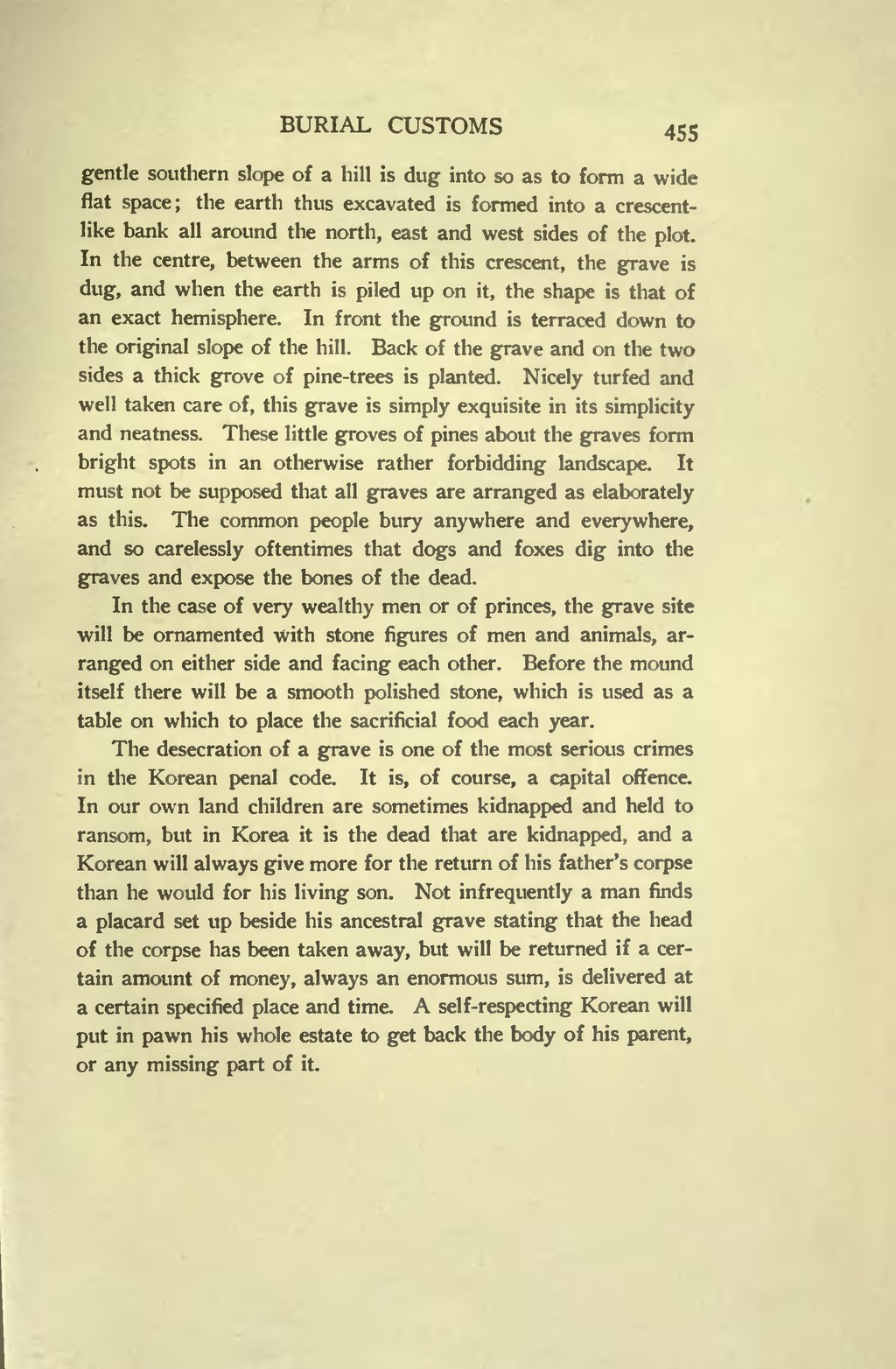gentle southern slope of a hill is dug into so as to form a wide flat space; the earth thus excavated is formed into a crescentlike bank all around the north, east and west sides of the plot. In the centre, between the arms of this crescent, the grave is dug, and when the earth is piled up on it, the shape is that of an exact hemisphere. In front the ground is terraced down to the original slope of the hill. Back of the grave and on the two sides a thick grove of pine-trees is planted. Nicely turfed and well taken care of, this grave is simply exquisite in its simplicity and neatness. These little groves of pines about the graves form bright spots in an otherwise rather forbidding landscape. It must not be supposed that all graves are arranged as elaborately as this. The common people bury anywhere and everywhere, and so carelessly oftentimes that dogs and foxes dig into the graves and expose the bones of the dead.
In the case of very wealthy men or of princes, the grave site will be ornamented with stone figures of men and animals, arranged on either side and facing each other. Before the mound itself there will be a smooth polished stone, which is used as a table on which to place the sacrificial food each year.
The desecration of a grave is one of the most serious crimes in the Korean penal code. It is, of course, a capital offence. In our own land children are sometimes kidnapped and held to ransom, but in Korea it is the dead that are kidnapped, and a Korean will always give more for the return of his father's corpse than he would for his living son. Not infrequently a man finds a placard set up beside his ancestral grave stating that the head of the corpse has been taken away, but will be returned if a certain amount of money, always an enormous sum, is delivered at a certain specified place and time. A self-respecting Korean will put in pawn his whole estate to get back the body of his parent, or any missing part of it.
